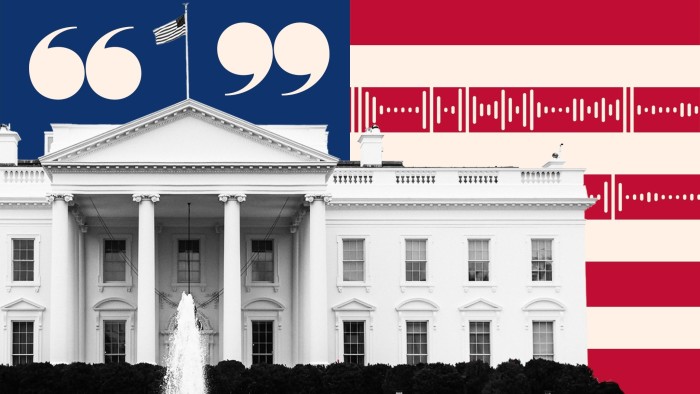When Yida Gao returned to MIT in 2022, the former varsity pole vaulter and Phi Beta Kappa honoree had big shoes to fill. The prestigious university had asked him to teach a graduate course at the business school on crypto and finance, a position recently vacated by Securities and Exchange Commission chair Gary Gensler.
Just a decade removed from his time as an MIT undergrad, Gao was undaunted. The Chinese immigrant was riding high in the crypto world after landing on the Forbes 30 under 30 list, and he had his own blockchain-focused venture firm, Shima Capital. In a short time, Gao raised $200 million from finance heavyweights like Bill Ackman and prominent crypto firms including Dragonfly and Galaxy, soon becoming one of the most active investors in crypto by participating in more than 300 deals.
Gao’s ascent was meteoric. But he also cut crucial corners. A Fortune investigation has discovered that unbeknownst to Ackman and his other investors, Gao created a secret offshore entity and funneled assets belonging to his venture fund into the corporation set up under his own name. “It’s directly contrary to what you’re permitted to do under the [Investment] Advisers Act,” said Eric Hess, a lawyer focused on digital assets and venture capital.
Gao has not yet been charged with any crime, and a representative for Shima Capital told Fortune that the firm does not comment on “regulatory matters such as this.” But his poor performance and behavior, which appears to violate SEC investor protection rules, left the one-time rising star of the crypto scene struggling to raise further capital, according to one source. And despite a booming market, a Shima representative told Fortune that the firm is not currently fundraising.
Gao’s firm has also experienced an exodus of top employees in recent months, including chief technology officer Carl Hua and head of research Alexander Lin, who left to start their own venture firm early this year, as well as chief of staff and head of platform Hazel Chen. The departed executives did not respond to a request for comment.
Meanwhile, Shima appears to be floundering despite the current crypto bull market. Its most recent SEC filing lists assets under management of around $158 million—a figure less than the $200 million Shima raised in 2022, although the metric does not directly track a fund’s performance.
While corporate malfeasance may be as common in crypto as impounded Lamborghinis, Gao still managed to convince an elite lineup of investors to back him—and continues to be active in the space. His missteps are likely to provide fodder for the industry’s critics who have long decried its penchant for slippery behavior.
“In crypto, there’s a lot of softness around the edges, sometimes a lot of ‘Trust me, bro,’” said Hess. “We need to start paying attention to these standards and not pretending unless we’re just the derelict children of the financial system.”
The shell game
The latest in a series of crypto wunderkinds to burst on the scene, Gao cut a more traditional path—clean-shaven, toned, and touting an impressive resume of blue-chip institutions. He began his financial career at Morgan Stanley doing mergers and acquisitions. In his spare time, he invested in startups, often collaborating with a well-connected fellow entrepreneur named Adam Struck. Gao worked at the venture giant New Enterprise Associates and briefly enrolled at Stanford’s business school before dropping out to join Struck’s venture firm in Santa Monica full-time.
While the partnership between Gao and Struck seemed to be thriving in public, the relationship turned acrimonious behind closed doors by 2019. Struck filed a lawsuit, alleging Gao had secretly stolen proprietary information and set up a rival venture firm, Shima Capital, incorporated in Puerto Rico. Gao denied the claims, arguing Struck had “belittled” his contributions and refused to acknowledge their 50/50 partnership, leading him to strike out on his own.
Struck did not respond to a request for comment about the legal dispute, which was settled in October 2023.
While the settlement remains under seal, Struck’s lawyers accuse Gao in the court filings of setting up a “shell game” of companies, including a British Virgin Islands entity called ShimaB, wholly owned by Gao.
Even as he sparred with Struck, Gao drew on his sparkling resumé and confident demeanor to persuade the top names in crypto and finance, including Bill Ackman and former presidential candidate Andrew Yang, to write him checks. According to a schedule of investments viewed by Fortune, Shima began to participate in deals in May 2021, with about $100 million invested in around 200 projects by September 2022. Not everyone, however, was impressed by Gao’s boyish charm.
Several investors, prospective backers, and would-be portfolio companies described Gao and his team to Fortune as young and inexperienced who didn’t really know what they were doing but rode the crypto wave nonetheless. One, who spoke on the condition of anonymity, said that Gao fit into a category of blockchain investors who have a more fast-and-loose approach, which can be an attractive bet for backers. “You’re buying the risk that you’re trying to capture,” they said.
The downside of betting on Gao soon emerged. Most notably, investors became concerned with how his firm valued its investments, with people familiar telling Fortune that Gao would mark up Shima’s holdings based on his own estimations—an unorthodox practice called out in a 2023 article from the Financial Times. Gao responded by pledging Shima would soon have professional fund administrators oversee the accounting.
In another example of questionable accounting, Shima valued its investment in the crypto exchange Chatex at $250,000 in a document viewed by Fortune dated September 2022, despite the fact that the U.S. Treasury Department had sanctioned the company almost a year earlier for facilitating illicit activity such as ransomware and darknet marketplaces. A Shima representative told Fortune that the firm eventually wrote off the investment by the fourth quarter of 2022, though the funds remain on hold pending the company’s sanction resolution, “to be conservative.”
And despite Gao’s promise to find an auditor, Shima struggled to hire one, with two prominent accounting firms turning it away because Shima fell outside their risk parameters, The Block reported in July 2023.
An SEC filing from April 2024 lists a Cayman-based firm called MHA Cayman as Shima’s auditor, and a representative from Shima confirmed that MHA completed Shima’s 2023 audit in May 2024. MHA did not respond to multiple requests for comment from Fortune.
‘It doesn’t make any sense’
On paper, Gao had sold investors a standard offering. He’d take their money and back early-stage blockchain companies, providing exposure and eye-watering upside to the buzzy sector.
But Shima’s struggle to find an auditor was unusual for a U.S. venture capital firm. So was the existence of the ShimaB overseas company owned solely by Gao. While many American crypto venture firms have set up offshore entities in response to an uncertain regulatory environment at home, those entities are owned by the firm—not the individual running it.
Gao did share a “fund structure” document with prospective investors that outlined a web of limited liability corporations owned by Shima that would hold investor capital and make investments, with several registered in the Cayman Islands.
But other internal documents viewed by Fortune tell a different story. The entity called ShimaB, which Gao had set up in his name while still working with Struck, did not appear at all in Gao’s fund structure document, nor in a prospectus shared with investors.
Meanwhile, other internal documents outlining Shima’s holdings reveal that more than 100 investments dated from mid-2021 to late 2022—after Shima had announced its $200 million fundraise—were owned by the Gao-owned ShimaB.
While there is no evidence that Gao set up the arrangement to misappropriate assets, experts say the structure appears to be a serious breach of conflict of interest rules set out in the Investment Advisers Act, a law that spells out the ethical obligations of VC firms towards their investors. In the case of ShimaB, the law appears to prohibit Gao from using investor capital to make investments into an entity he legally owns without proper disclosure.
The reason, aside from basic transparency, is that if something were to happen to Gao, such as a sudden death or bankruptcy, the ownership of the investments could be disputed. “It doesn’t make any sense,” said Hess, the venture and blockchain lawyer. “I don’t think that’s a defensible strategy.”
Red flags
In late 2022, Shima’s investors began to discover the existence of the ownership structure, as well as the valuation disparities, leading them to raise alarm bells with Shima’s management. Galaxy was able to redeem its investment. Others who had made a small investment, including Bill Ackman’s family office and Dragonfly, largely stayed out of the dispute. Those familiar with the situation suggested this was because their investments were relatively small. (Representatives for Galaxy, Ackman, and Dragonfly declined to comment.)
In March 2023, Gao sought to allay concerns by meeting with Shima’s small advisory committee, and disclosing that the firm had made “warehoused” investments using ShimaB, a term that described parking deals made before a full investment round is completed.
According to the meeting’s minutes, Shima claimed it had made the investments using investor capital, but always intended to transfer them to the firm. In response to a list of questions from Fortune, a Shima representative repeated that the firm had warehoused investments through “affiliated” entities, including ShimaB, and had transferred the investments to Shima’s new funds.
The minutes and representative’s responses, however, do not include any indication that the firm ever disclosed the ShimaB arrangement to its investors, nor do they reflect that Gao was moving their funds around in his own name rather than through Shima. What’s more, due to assignment restrictions for many of the investments, it is unclear whether Shima would even be able to transfer all of the investments back to the firm.
Beyond disgruntled investors, Shima’s compliance issues could also have legal ramifications for Gao and his company. According to the lawyer Hess, the apparent conflict of interest violations could create a host of problems with the SEC if Shima did not disclose the questionable arrangements during examinations. He added that enforcement penalties could range from fines to Shima losing its investor adviser status, although he didn’t think it would rise to the level of fraud.
Despite the ignominious track record, Shima continues to actively participate in deals. Investors are flooding back into crypto, with memecoins like the popular Dogwifhat rallying alongside regulatory wins in the U.S. In April, Shima was listed as an investor in a token round for the new blockchain of another dog-themed coin, Shiba Inu.
Gao may not be an anomaly in crypto. Still, for an industry trying to shed its unruly reputation, he serves as a cautionary tale for investors seeking to avoid the stumbles of the last bull cycle.























































